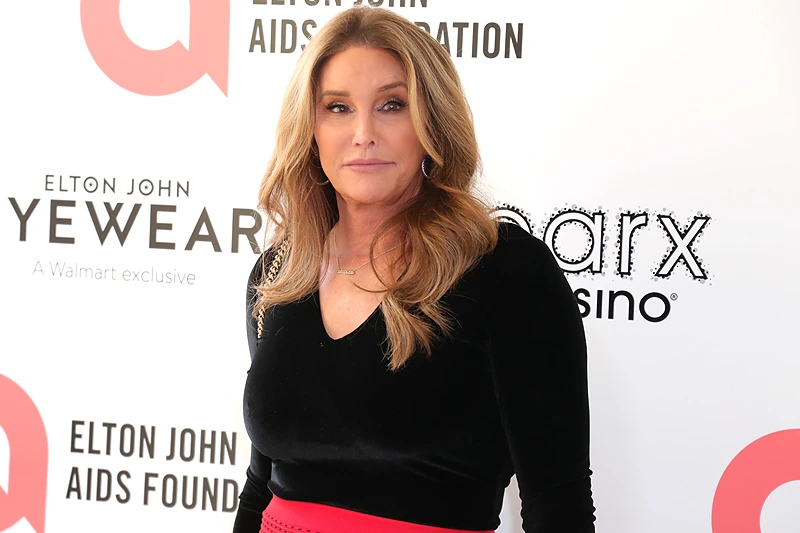
OAN Brooke Mallory
UPDATED 7:00 PM – Friday, April 7, 2023
As the backlash against the brand intensifies, Caitlyn Jenner has criticized “woke” Nike for sponsoring transgender TikTok star and actor Dylan Mulvaney to sell its sports bras and women’s apparel.
Mulvaney, 26, appeared in several photos and videos promoting the company’s sports bras and leggings. Mulvaney identifies as a woman and uses the pronouns “she/they,” but Dylan hasn’t undergone gender reassignment surgery yet.
Jenner, a former Olympic champion and transgender reality star, called Nike’s move “outrageous” on Twitter on Thursday. Jenner, 73, has publicly opposed transgender people who were born male from participating in female sports, due to the unfair biological physical advantage.
“As someone that grew up in awe of what [Nike founder and former CEO] Phil Knight did, it is a shame to see such an iconic American company go so woke!” Jenner said.
“We can be inclusive but not at the expense of the mass majority of people, and have some decency while being inclusive. This is an outrage.”
Jenner added that she did not blame Mulvaney for accepting the brand deal, saying “A little context…I did a collab with H&M (I have done many athletic brand collabs over the years as a successful athlete). I don’t blame Dylan (smart move).”
“I did not like how Nike treated Allyson Felix when she became pregnant. I spoke on the outrage of disparity in their pay.”
Felix, an Olympic athlete who has won ten medals, quit working with Nike in 2019 because, according to her, the company did not guarantee the value of her contract when she suddenly became pregnant.
As the most accomplished American female track and field athlete in history, Felix admitted back in 2018 that she was “frustrated” by the way her sponsor Nike responded to the news of her pregnancy.
When Felix became pregnant, she had been sponsored by Nike for almost ten years, but she stated that they “weren’t willing” to support her “through starting a family.”
“I’ve been to four Olympics, I’ve had the successes, and my value is still not being seen,” wrote Felix.
“Even after becoming a mum, I still had that desire to run, I still knew I was capable. But I was left without shoes to wear at the Tokyo Olympics, which is not ideal for a runner.”
Nike declined to make any comments.
A boycott of Nike is also being led by Olympic swimmer Sharron Davies because of the company’s association with Mulvaney.
In order to sell more of their line of feminine apparel, Nike has intensified its marketing of the transgender influencer, asking consumers calling for a boycott to “be kind and inclusive.”
Women and men expressed grievances about Mulvaney, who identifies as female but has not undergone gender reassignment surgery, prompting the brand’s tone-deaf response.
Nike’s initial statement was posted online, where they stated that the brand would remove any comments it did not deem to be inclusive of diversity.
“You are an essential component to the success of your community. We welcome comments that contribute to a positive and constructive discussion. Be kind. Be inclusive. Encourage each other. Hate speech, bullying, or other behaviors that are not in the spirit of a diverse and inclusive community will be deleted,” Nike’s official account posted.
This is not the first time that Nike has collaborated with a transgender celebrity in their marketing.
In 2021, they debuted their “Play New” brand campaign with athlete Mara Gomez, a professional soccer player in Argentina who was born a man but later transitioned to a female.
“The ad feels like a parody of what women are. In the past it was always seen as an insult to say, ‘run like a girl’ and here we’ve got someone behaving in a way that’s very un-sporty and very unathletic and it’s so frustrating when only 1% of USA sponsorship dollar goes to females in sport,” said Sharron Davies, a former competitive swimmer who represented Great Britain in the Olympics.
“For a long time, Nike sponsored Allyson Felix, one of the world’s most incredible track athletes. Then, when Allyson got pregnant, they reduced her sponsorship by 70% when she had something happen to her that happens only to women,” continued Davies.
Davies also argued that it was not effective for a biological male without fake breasts to effectively promote products, such as bras, which have to work for women’s bodies.
“Dylan is advertising sports bras when there’s nothing to put in the sports bra – when actually it’s really important women get proper support when they do sport. It just doesn’t make sense.”
Although the amount of money that Mulvaney received from Nike for the posts is unknown, some social media analysts and insiders speculate that it could have been as much as $50,000 per social media post. Nike tends to pay their brand ambassadors extremely well, being one of the most popular brands in the world.
Stay informed! Receive breaking news blasts directly to your inbox for free. Subscribe here. https://www.oann.com/alerts

